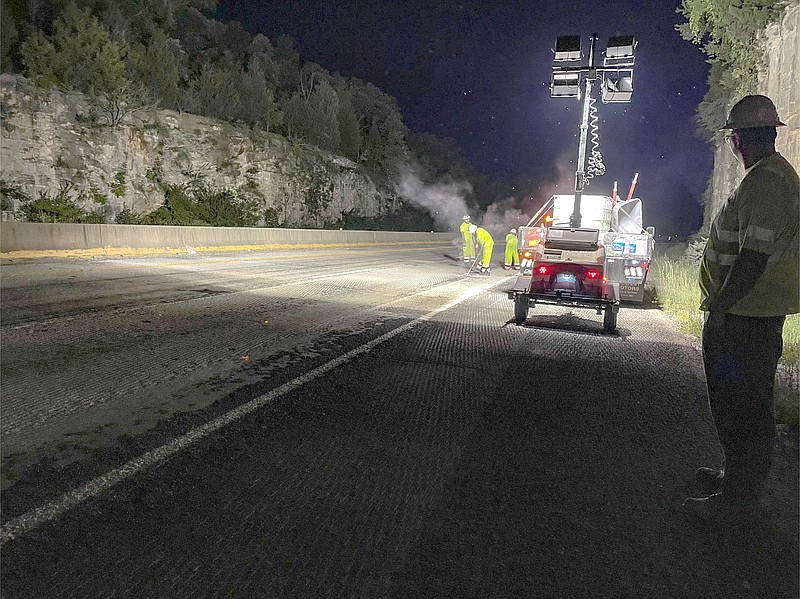COLUMBIA, Mo. - The sun was setting on Stadium Boulevard, but that's not why Dr. Bill Buttlar was there.
Joined by researchers and engineers from the Missouri Department of Transportation and the University of Missouri, he was there to talk about the ground. This might be the next big thing in pavement, after all.
"It feels like it. There's a lot of buzz nationally," Buttlar said at the Monday night gathering.
A new asphalt mixture will be making its debut on the stretch of street - just west of College Avenue on Stadium Boulevard. A product of a collaboration between MoDOT, Dow and MU's Asphalt Pavement and Innovation Lab, the asphalt is different from traditional pavement: it contains recycled plastic.
"Plastic was developed to be durable and has a shelf life of hundreds of years," Buttlar said. "Asphalt and plastics are also chemically similar because they both come from crude oil, so they can be mixed together. They aren't perfectly compatible, but it's close enough that engineers and chemists can work together to find a workable solution."
Buttlar said the new mixture has been in the works for about two years, since Jim Fitterling, Dow chief executive officer and MU alum, visited the lab and had his interest piqued.
The idea for putting plastic materials in asphalt was out there, but research had to start from scratch - with a "whiteboard full of ideas," as Buttlar put it.
"We were aware through the literature that certain places in the world had been looking at this, but it wasn't quite ready for use in the United States," he said. "And so we knew we really had to start at ground zero with the research."
Now, it's time for the new asphalt mixture to meet the real world.
"In Missouri, we like to go from the lab to the field a lot of the time as quickly as possible because, ultimately, the proof is what does the field performance look like under real cars and real trucks?" Buttlar said. "That's the route we took."
There will be three stretches of test material on Stadium Boulevard: one with traditional asphalt, one with the plastic mixture and another with a mixture that includes scrap tire rubber.
The stretch of road averages 36,000 cars a day, and researchers plan to observe how the materials hold up over a year - the Midwestern climate's freezes and thaws require pavement that holds up to temperature extremes.
Signs will mark the test segments and inform drivers, MoDOT confirmed, though they shouldn't notice a difference as they drive over the new surface.
And for the crews installing the plastic-infused asphalt, no new equipment is necessary.
"You can imagine an auger, like a big screw and a fan, and it pushes the recycled material through a tube - kind of blows it into the plant," Buttlar said. "We've injected other materials that are similar in weight, so we had a very good feeling that this would just work with existing equipment."
Buttlar is excited for what this new asphalt could bring to roadways - and what it could keep out of landfills and oceans by recycling plastic.
"Once (people) learn about the project, they'll be excited to know that when that curbside recycling comes or whenever they put that bottle or bag in a recycling container at work or at the mall, that it's really going to go somewhere and might go somewhere locally," he said. "If we create a craze of recycling, an optimism for recycling, then we can really get more of the plastic collected and used."
MoDOT needs pavement to last at least a decade, preferably 12-15 years before replacement is necessary. Recycled materials can boost a surface's strength and toughness, though, and provide cheaper materials for resurfacing projects, like Stadium Boulevard.
So, in Buttlar's eyes, asphalt mixed with plastic is a perfect path for pavement innovation.
"That helps us hit the triple bottom line of economics, sustainability and durability," he said.
This article was edited at 11:37 a.m. Aug. 16, 2021, to clarify that the new asphalt mixture will be debuting on a stretch of Stadium Boulevard just west of College Avenue.

